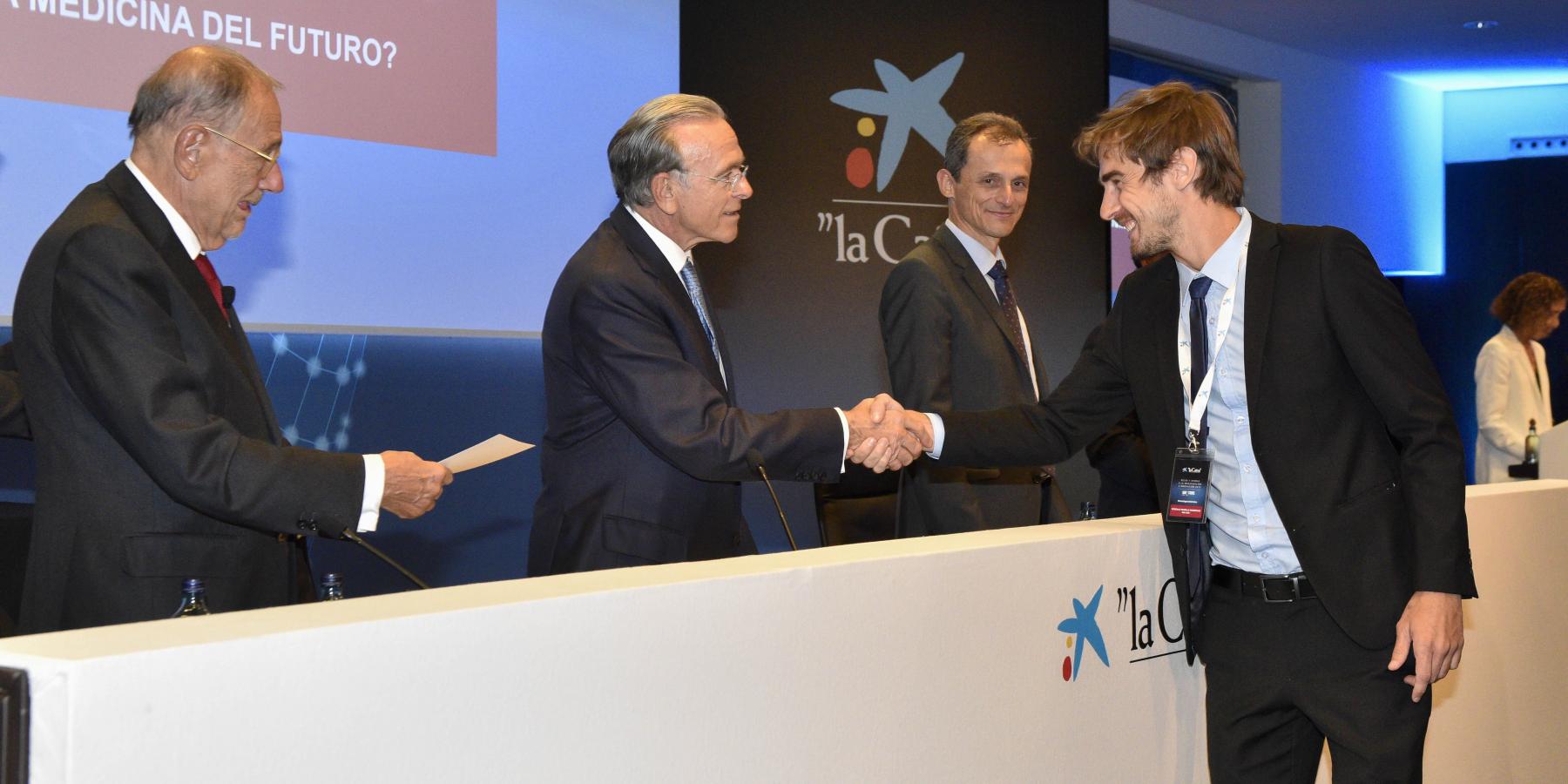Institute of Microelectronics of Barcelona researcher, Gonzalo Murillo, receive "la Caixa" 2019 research grants
The researcher of the reference center in microelectronics in the country has received a Junior Leader Retaining research grant, in the postdoctoral fellowships call.

The "la Caixa" Foundation recently awarded a total of 28 million euros in grants to 79 pioneering research and social impact projects. The grants were awarded by President of the Foundation Isidro Fainé; Director General Jaume Giró; Javier Solana, member of the Board of Trustees and of the foundation's expert Research Advisory Board; and Pedro Duque, Spanish Minister fro Science, Innovation and Universities. The research projects belong to three lines of action in research conducted by the "la Caixa" Foundation: post-doctoral grants aimed at fostering talented researchers; support to excellence in research in biomedicine and health with the Health Research grant, and the CaixaImpulse programme, aimed at transferring biomedical research results to society.
Researcher Gonzalo Murillo, from the Institute of Microelectronics of Barcelona will receive 300.000 euros under the “Junior Leader Retaining” call. This is the second edition of the grants call and a total of 11 research initiatives of 480 applications have been selected. The grants will help the successful candidates to conduct their research, promoting quality innovative scientific careers in Spain and Portugal.
The project led by, Energy harvesting for extremely-miniaturized autonomous bioelectrónica devices applied to minimally-invasive electrical Stimulation at cell level (SPARKDUST), aims to study the application of autonomous microchips, smaller in size than a cell, in the fields of medicine and nanomedicine. This study comes from its background in energy harvesting and piezoelectric nanomaterials. Our body is mostly regulated by electrical impulses. Nerves, muscles and organs use neural spikes as communication language. In fact, disorders such as epilepsy, Alzheimer’s and Parkinson’s diseases, chronic pain or depressions can be treated by electrical stimulation. Despite the efforts to miniaturize these implantable devices, known as electroceuticals, patients still have to suffer a delicate surgery and carry an implanted device and a battery all the time.
This project proposes the development of autonomous micro and nano bioelectronic devices for the future treatment of a huge variety of devastating diseases such as neural and motor disorders. It is based on the electrical stimulation of electroactive cells, such as muscle cells, osteoblasts and neurons. These tiny devices produce small electric potentials when harvesting the energy around the cell (cell motility, ultrasounds, magnetic fields, etc.). They are fabricated by integrating smart nanomaterials, micro and nano electromechanical systems (MEMS/NEMS) and microelectronics.
the project aims to work in this innovative perspective of a nanomedicine not based on chemical processes, but consisting of “smart dust” which can electrically stimulate specific groups of cells of key organs and nerves of the body, which would allow to treat effectively treating devastating diseases avoiding side effects or surgeries.




